Background
LIBOR and EURIBOR are interest rate benchmarks that are published daily, which reflect the rates banks borrow money from each other (without collateral). These same rates are used worldwide as the basis for the value determination and settlement of various types of financial instruments and products, such as loans, options and interest rate derivatives.
In the period from 1 January 2001 until 30 June 2011, panel banks and brokers manipulated the EURIBOR and LIBOR interest rates (and a number of other interest rate benchmarks) for private gain and at the expense of unwitting trading partners, institutional investors and, collectively, market participants.
The collusion of the panel banks and brokers with influence over benchmark rate submissions was in violation of the specific rules that applied for the panel members based on which the relevant rates had to be submitted on an independent basis.
Regulatory Action
A number of global banks are under investigation by various regulators around the globe, including the US Department of Justice (“DOJ”), for the banks’ involvement in the manipulation of LIBOR and EURIBOR. By the end of 2012, two banks had negotiated billions of dollars in settlements with the DOJ, European Commission (and other regulators) over the LIBOR and Euribor manipulation. To date, 14 banks and brokers have paid regulatory fines of almost $10 billion related to manipulation of benchmark rates, including LIBOR.
US Civil Litigation
In the United States, civil/private antitrust litigation is proceeding on behalf of market participants damaged by the cartel’s benchmark rate manipulations. The class action litigation covers damaged parties who transacted in impacted interest rate derivatives markets in the United States.
Most of the transactions which occurred outside of the US are not covered by the US class action and these transactions will not be eligible to receive any compensation pursuant to settlements and/or verdicts in the US class action litigations.
Dutch Collective Action
Stichting Elco Foundation (“Foundation”), is a Foundation organized under Dutch law, to represent the interests of stakeholders who suffered losses as a result of the benchmark rates manipulations orchestrated by panel banks and brokers for which the Dutch Courts have jurisdiction. On behalf of eligible participants, the Foundation is asserting claims against the panel banks and brokers for manipulating IBOR interest rates during the period of 1 January 2001 until 30 June 2011. The Foundation aims to protect the interests of financial institutions, as defined in its articles of association, that have been harmed by the IBOR(s) manipulation in the European Union. Because they trade in many financial products and derivatives on a professional basis and also depend on the setting of the various IBORs for their results, the conduct of the panel banks and brokers has inflicted significant damage to the financial community. Market participants whose interests are protected by the Foundation wish to recover their damages from the panel banks and brokers.
The Foundation invited the European Union-based (relevant) panel banks and brokers to discuss an amicable settlement, with no result to date. The Foundation contemplates to start legal proceedings and will seek declaratory relief on behalf of interested parties/participants in the District Court in Utrecht, the Netherlands.
